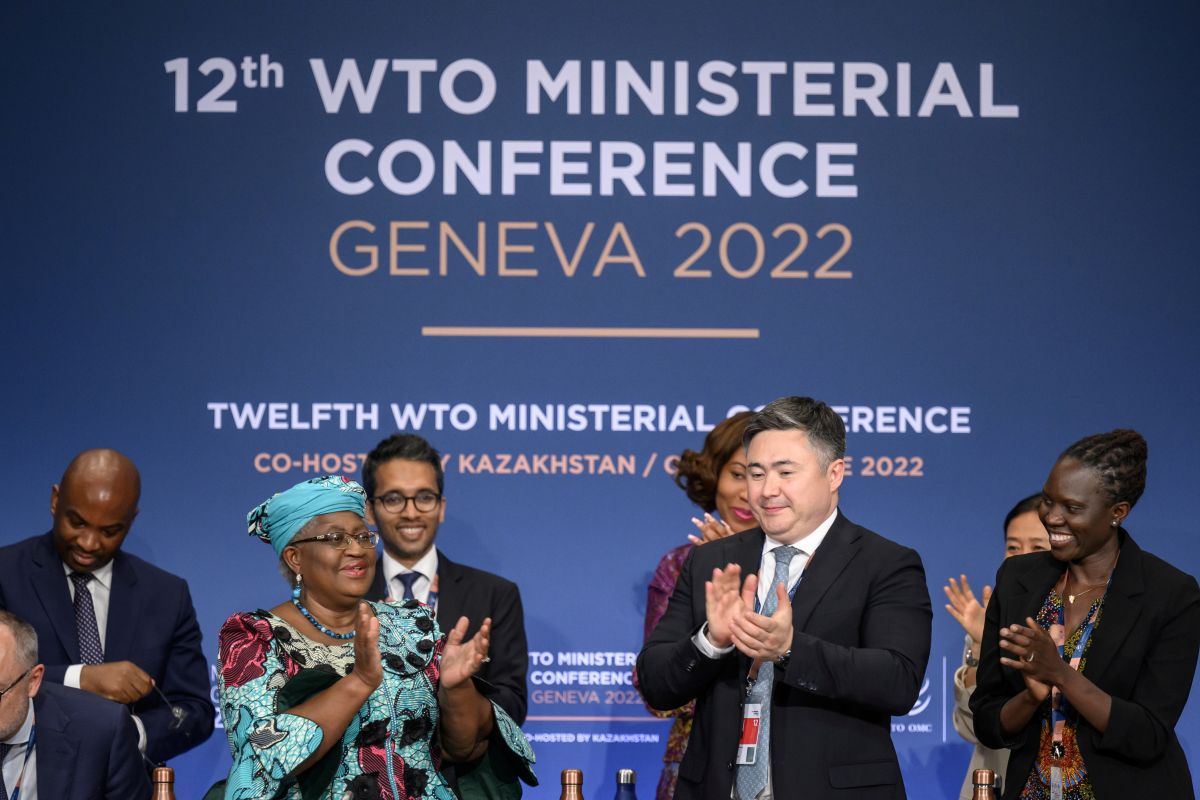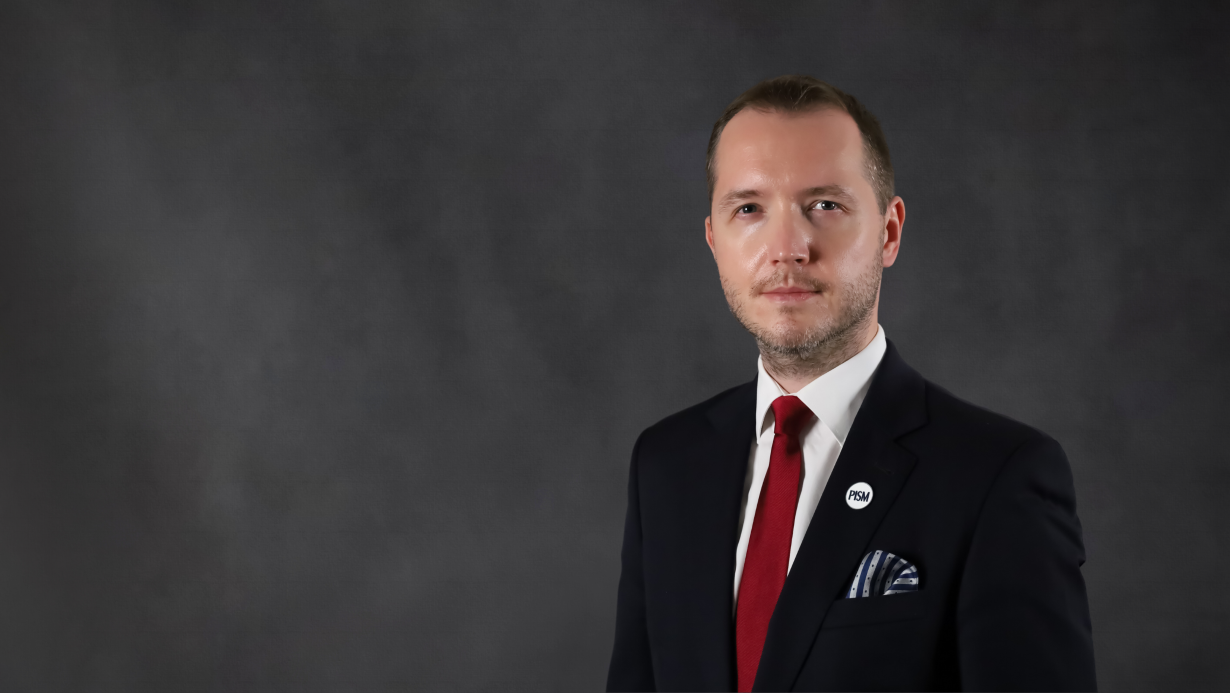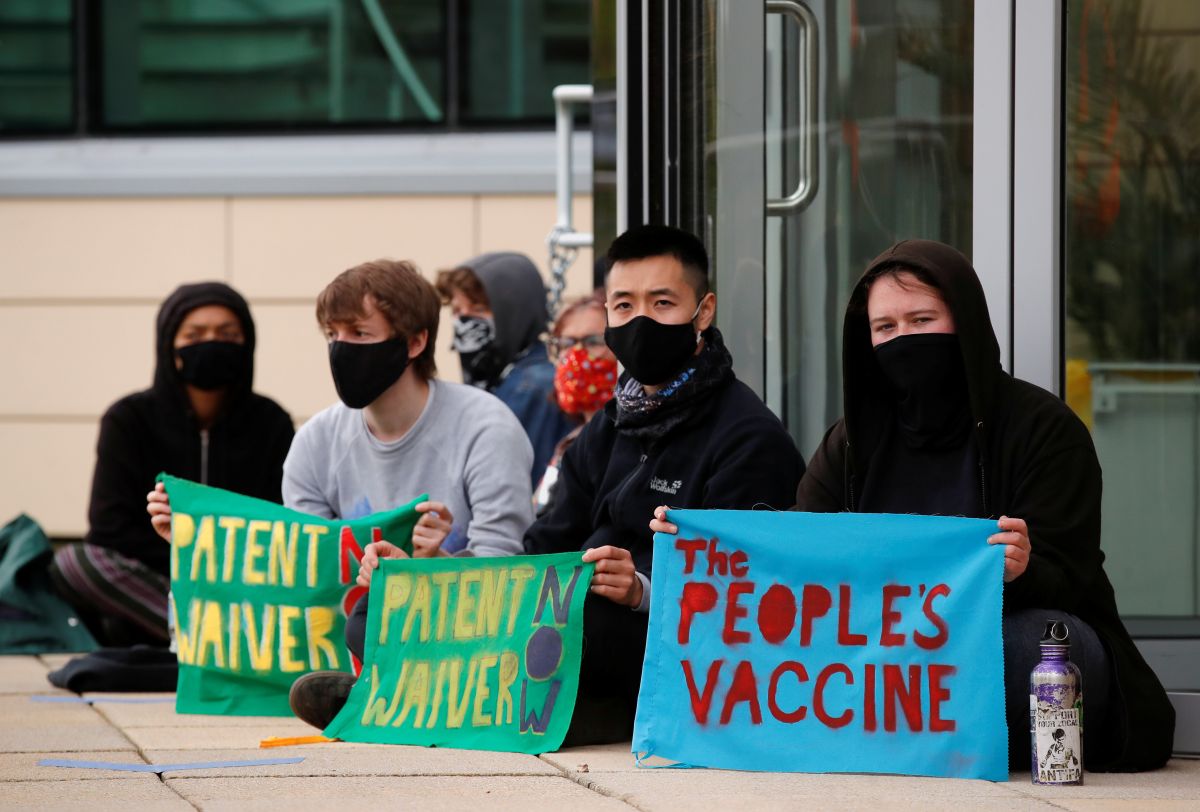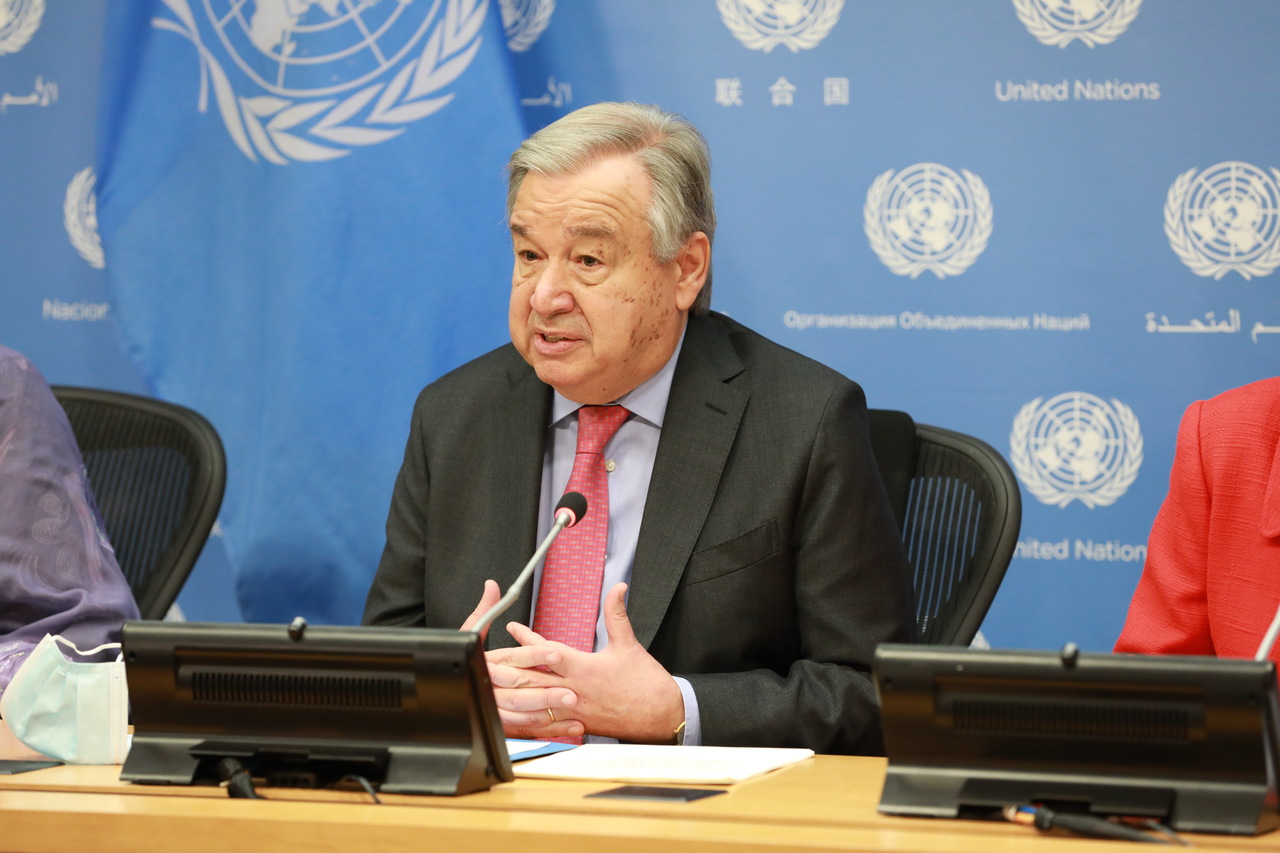WTO Negotiations Progress After the 12th Ministerial Conference Despite Challenges
Participants in the WTO’s first ministerial conference in nearly five years, which was held in Geneva on 12-17 June, took several important decisions, including on a waiver of intellectual property rights on COVID-19 vaccines and the reduction of subsidies for fisheries. The effects of the meeting testify to a breaking of the negotiation deadlock visible in recent years. However, the key issue of WTO reform remains unresolved. The EU should actively support talks on changes in the organisation, while striving to conclude trade agreements with a smaller group of its members.
 POOL/ Reuters/ FORUM
POOL/ Reuters/ FORUM
The ministerial conference is the highest decision-making body of the WTO. It is made up of the trade ministers of members of the organisation (states or customs territories) who meet usually once every two years. The previous meeting took place in December 2017 in Buenos Aires. The one scheduled for June 2020 in the capital of Kazakhstan, Nur-Sultan, was cancelled due to the COVID-19 pandemic. The conference was then to be held at the WTO headquarters in Geneva at the end of 2021 but was postponed due to travel problems connected to the emergence of the new Omicron variant. The conference finally took place in June, co-hosted by Kazakhstan. It was scheduled to end on 15 June, but the deliberations were extended by two days to allow more time to reach agreements. Some of the decisions taken at the meeting respond to the challenges of the ongoing pandemic, the war in Ukraine, rising global inflation, as well as the food and energy crisis.
Main Effects of the Conference
At the 12th Ministerial Conference (MC12), the ministers adopted the “Geneva Package”. One of its main provisions is to adopt a waiver on patents on COVID-19 vaccines valid for the next five years, which was primarily sought by developing countries. However, those developing countries that already have the ability to produce such preparations are encouraged to make a binding commitment not to benefit from the waiver mechanism (this was declared by China, recognising itself as a developing country). The decision is to enable more effective production and distribution of vaccines on a global scale, which will help contain the pandemic, including the emergence of new variants of the coronavirus. It was made despite opposition from the pharmaceutical industry, which argued the waiver may deter the development of new products, including vaccines, by weakening intellectual property protection. However, the WTO arrangements do not cover therapeutics and diagnostics, with decisions on these matters to be taken within six months. The ministers also declared efforts to facilitate and remove barriers to the flow of vaccines and medical equipment in order to combat future pandemics.
WTO members also reached an agreement to limit subsidies for fisheries. Negotiations on this topic have been going on for more than 20 years. It is only the second agreement in the history of the WTO on new international trade rules concluded by all members and the first one related to sustainable development (the previous one in 2013 concerned administrative facilitation of trade). The agreement covers, among others, elimination of subsidies contributing to illegal, unreported, and unregulated fishing, as well as areas already overfished and in the high seas (except for internationally regulated fisheries). Developing countries have a two-year transition period within their exclusive economic zones (up to 200 nautical miles). However, the agreement did not include such issues as a reduction in subsidies for shipbuilding or the purchase of fuel. The agreement will enter into force after it has been ratified by two-thirds of the WTO members.
WTO members also extended the moratorium in force since 1998 on the imposition of duties on e-commerce, which is to support the development of the digital economy. Some countries, mainly developing ones, indicate the need for changes in this area so they can obtain additional sources of income and shape the regulations on e-commerce more effectively. WTO members also adopted a declaration that any measures introduced to ensure food security would be temporary and transparent, so as to disrupt the trade in agri-food products as little as possible. This is aimed at limiting export bans, for example, on cereals, which has happened in recent months due to rising prices and lower availability. However, the general content of the declaration may be interpreted differently and give rise to new disputes. In a separate decision, the WTO countries obliged not to impose restrictions on the purchase of food by the World Food Program.
Challenges
Despite reaching agreement in several areas, one of the most difficult issues to resolve remains reform of the WTO. The purpose is to ensure the effectiveness of the organisation, taking into account the various interests of its members. During MC12, the ministers only declared their readiness to continue talks on this issue and to propose changes at the next meeting, to be organised by the end of 2023.
It is particularly important to restore the efficient functioning of the Appellate Body, paralysed since the end of 2019 by a block on the nominations of new members by the U.S., which asserts, among other things, that the body has exceeded its powers. In this situation, some WTO members, including the EU, established in April 2020 an appellate institution outside the organisation’s structures—the multiparty interim appeal arbitration arrangement. It recognises rulings in cases between them (currently over 20 states or customs territories are participating). It introduced new rules in response to the criticism of the WTO Appellate Body, including focusing arbitrators on issues necessary to resolve the dispute, which is to prevent it from extending its competences. At the June meeting, the ministers announced their intention to restore the functioning of the WTO Appellate Body by 2024.
Disputes also arose about the status of developing countries. At the MC12, WTO members confirmed the maintenance of the special and differential treatment of this group, pointing to the fact that it should be precisely defined in the agreements concluded on the forum of the organisation (e.g., the U.S. proposes a reform of this status so that it does not include China). At the WTO forum, talks important for the world economy are still ongoing, including on e‑commerce, trade in environmental goods, services, investments or industrial subsidies, and the functioning of state-owned enterprises, which Western countries are pressing in the context of the operations of Chinese companies. Negotiations on agricultural products are also difficult, including the recognition of stockholding and subsidies to increase food security, as postulated by, for example, India. The challenge remains to improve the effectiveness of notification of new barriers to trade in the WTO (e.g., China is accused of avoiding these actions), which would increase the transparency of its members’ economic policy.
Conclusions and Perspectives
The effects of MC12, especially the decisions on the waiver of intellectual property rights on COVID-19 vaccines and reduction of subsidies for fisheries, strengthen the organisation’s credibility. They show that the WTO can achieve limited goals even in the face of international tensions. However, long-term changes in the organisation and increasing its effectiveness will be difficult due to, for example, the persistent differences between developed and developing countries or the desire to use trade instruments for political purposes. Improved WTO functioning will not be favoured in the near future by the international situation, especially the ongoing Russian invasion of Ukraine and tensions between the U.S. and China, including against the backdrop of tensions over Taiwan. In addition, the recurring waves of the COVID-19 pandemic and problems with food supplies and rising raw material prices may induce WTO members to apply protectionist practices.
It is in the interests of the EU and its Member States to enhance the effectiveness of the WTO, including negotiating trade agreements in specific areas and settling disputes, which will help maintain the rules-based international order and reduce protectionism in international trade. In addition to supporting reform of the organisation, the EU should actively engage in trade negotiations with a smaller group of WTO members, such as in e-commerce, services, or environmental goods, which could encourage other countries to join and expand the range of regulations. Until an agreement on comprehensive reform is reached, it will also be important to maintain temporary solutions, including organisational and financial strengthening of the appellate institution operating outside the WTO.




